Secrets behind the best Australian celebrity nicknames
This is how some of Australia’s biggest celebrities and sporting stars got their memorable nicknames that have stuck with them forever.
Celebrity Life
Don't miss out on the headlines from Celebrity Life. Followed categories will be added to My News.
Anybody who ever worried that Australian culture would one day get pulverised under the heavy wheels of its American counterpart, fear not.
The culture is in a state of rude good health, if our predilection for nicknames is any indication.
In Australia in 2020, our PM is ScoMo, his opponent is Albo, and there are successful business leaders known universally as Twiggy and Singo.
Turn on the TV now and you might catch Farnsey, Barnsey and Ahnsey together in a TV commercial.
Over the years the small screen has also given us Molly and Moonface, Dickie, Dicko, and Dingdong, as well as Hughesy, Hoges, Hotdogs, Bubbles and The Bish.
And that’s before we even get to the sporting world, where our legends go by names like Pup and Plugger, Freddy and Fatty, Noddy, Joey, Junior, Dasha, Dipper, Spida, The King, The Chief, The Don, Thorpie and Warnie. And on it goes.
We won’t even talk about breakfast radio.
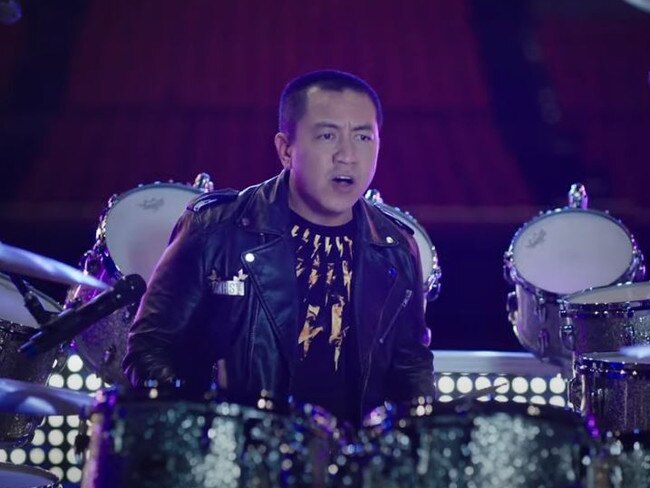
Our nicknames seem to crystallise the Aussie sensibility like nothing else. A redhead will be Bluey, a short guy might get Lofty, and a bloke with a quiet disposition can only be Mad Dog.
An open question on Facebook about memorable Aussie nicknames yielded some jaw-droppingly tasteless examples. A guy who was skinny as a boy got ‘Bobby’, after IRA hunger striker Bobby Sands; a former Thalidomide baby goes by the name of ‘Fingers’; a bloke with the surname of Dunn became ‘Dunny’, which then became ‘Shitta’; and a woman with the surname Allsopp is ‘Slops’ to her friends. More than one respondent who attended an all-boys school remembered lads who attracted nicknames simply for having foreskin.
Our nicknaming seems to revel in a certain crassness, but it also occasionally reaches heights of genius, too. One respondent mentioned a work colleague known as ‘Milo’ because he wasn’t Quik. Another remembered the kid from school who got the nickname ‘Passive’ simply because of the amount of passive smoking he must have done while he was a passenger in his brother’s car.
And while nicknames might skew towards being a white/Anglo thing, it’s not exclusively so. A language study of the Warlpiri people of the Tamani Desert revealed the nicknames they gave to whitefellas, including a couple who were dubbed ‘Truck’ and ‘Trailer’ “because one of them always trailed around after the other”.
Australians may be prodigious users of nicknames, but according to ANU linguistics expert Professor Jane Simpson, “using nicknames isn’t particularly Australian, and using nicknames which seem really funny is also not particularly Australian.”
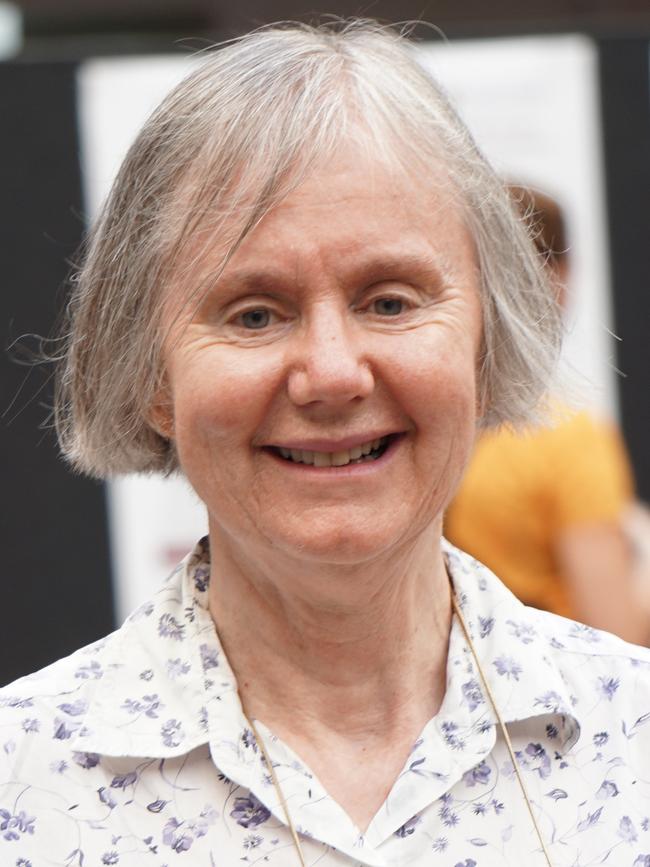
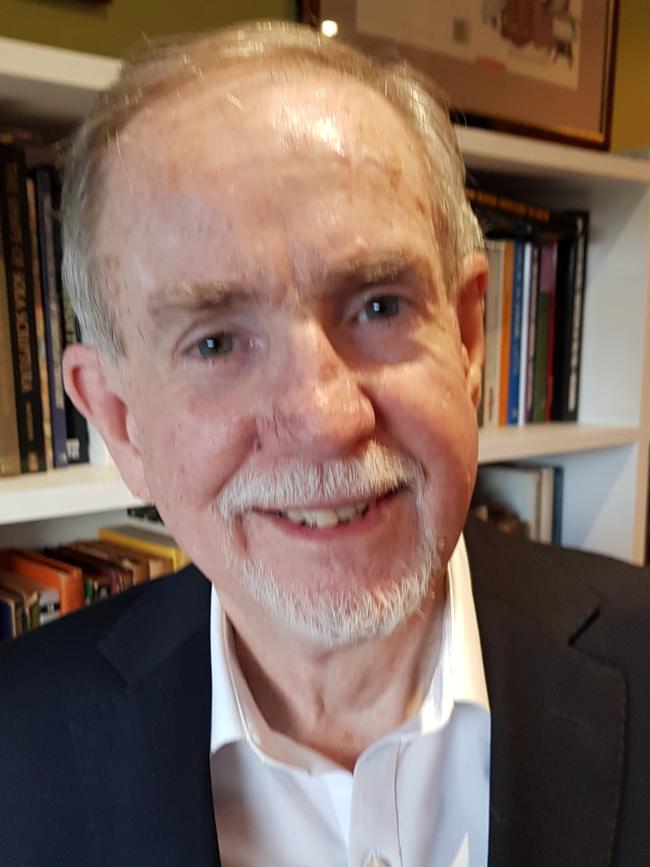
What is unusual about us, she said, is our fondness for nicknaming places, such as The ’Gong, The ’Loo and Brisvegas. The trend also extends to companies, with McDonald’s adopting its nickname ‘Macca’s’ in its marketing – a development which a spokesman said was “unique in the global business”.
That name ‘Maccas’ reveals another distinctive feature of Australian nicknaming: our love of diminutives. From Shazza and Bazza – a form that the Americans find “totally weird”, Prof Simpson said – to Davo and Kimbo, we just can’t seem to let a good name be. Why is that?
“I think it’s to do with tribalism,” said author and broadcaster Kel Richards. “When you shorten someone’s name, when you give them that sort of nickname, you’re indicating that we belong to the same tribe.”
Richards is currently working on a book about convict slang, and he suspects the shortening of names may have had its genesis in the tribalism that arose from our early days as a penal colony. But the convict system also gave Aussies a unique feel for language, he said.
“The convicts came from all over England, Ireland and Scotland, and they were all together on the same chain gangs, so you’ve got people trying to understand each other’s dialect,” Richards said. “What that does, when you’ve got people who all speak differently and have to communicate with each other, is you become very aware of language, very sensitive to language.”
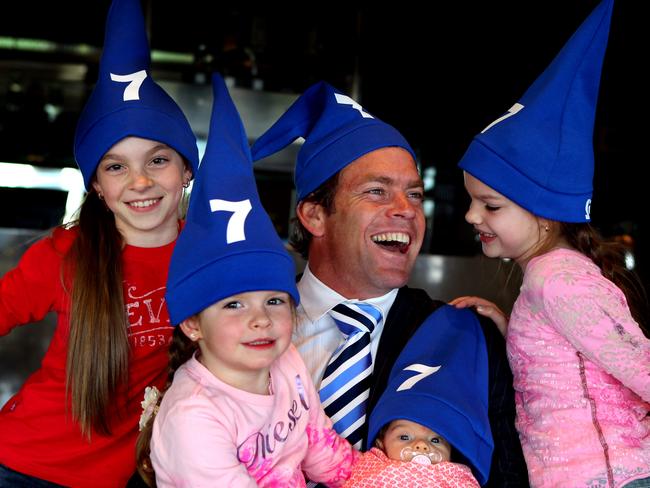
MORE NEWS
NRL legend Darren Lockyer caught up in tribal land war
50 best and worst stocks you’ve spent your money on
Five steps for a cheaper home loan
Aussie COVID workers blast conspiracy theorists, anti-maskers
Celebrities ‘banned’ by social media
Straw polls, and the examples used in this story, suggest that Aussie men get nicknamed more than women – but again, it’s not an exclusive thing.
“It may well be that women have friends and blokes have mates and it’s a different kind of relationship,” Richards suggested. “It’s a bonding thing, and for blokes it’s part of the bonding process, whereas I think women are better at bonding with each other and forming friendships than blokes are. Maybe they don’t need it; it’s like an extra tool.”
One of the most famously nicknamed women in Australia is Denise Drysdale, who has worn her nickname ‘Dingdong’ with pride since her TV debut in 1974.
“If someone gives you a nickname they usually give it to you out of affection, and I think that’s why it stuck,” she told News Corp. “I didn’t take offence, I think it’s been fantastic to have it. It’s an acceptance thing.”
Drysdale’s co-star Ernie Sigley dubbed her Dingdong soon after they started working together, typifying something else about nicknames: we tend to get them in the early days of a friendship.
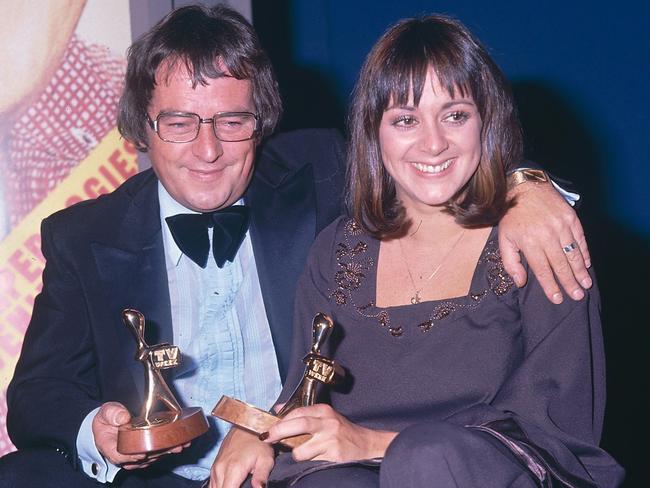
The stories of schoolkids or teammates who got tagged with a nickname, simply for something they said, did or wore on their first day, are legion.
“It’s almost as though it’s part of the connecting process,” Richards said.
More recently on Australian TV we’ve had Marnie Moo Cow on Farmer Wants A Wife. The 48-year-old workplace safety assessor said she got her nickname as a kid “because of my big soft blue eyes and big eyelashes, like a cow. I don’t get called Marnie very often, I get Mooey or Moo Cow. I don’t care.”
“I’m pretty good at nicknaming everybody,” the mother of two said. “I have one girlfriend who’s a good dancer, so I call her Legs, another with really big breasts – I call her Tits – and one who I call Switch, because when she has too much to drink she turns into a psycho.”
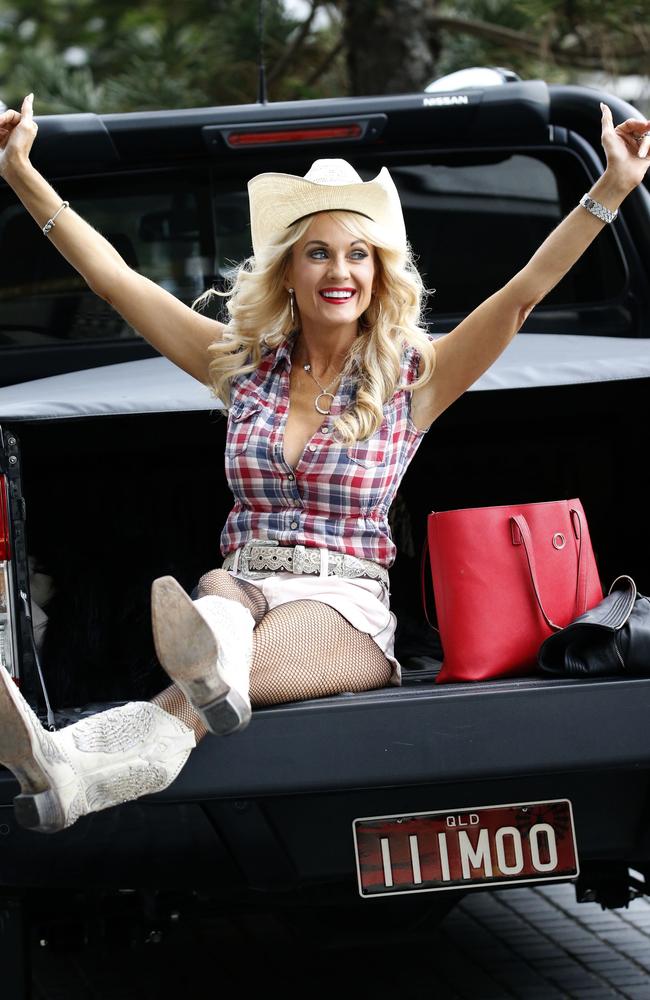
Former Rugby League player Brett Kimmorely said he got his nickname ‘Noddy’ at an under-17s pre-season training camp, when a coach and three other players simply decided to name him after Enid Blyton’s bonnet-wearing kid’s book character.
“I don’t know if it was a swipe about how I was probably the shortest in the team, but it’s the only nickname I’ve ever had and it’s stuck my whole career,” he said. “People call me Noddy more than my real name.”
AFL legend Peter Everitt has a similar experience, having worn the nickname ‘Spida’ (originally ‘Spider’) since he was 19, playing with St Kilda.
Everitt got the name for his lanky frame, likened to a Daddy Long Legs, and he said it was an improvement on his previous nickname ‘Storker’.
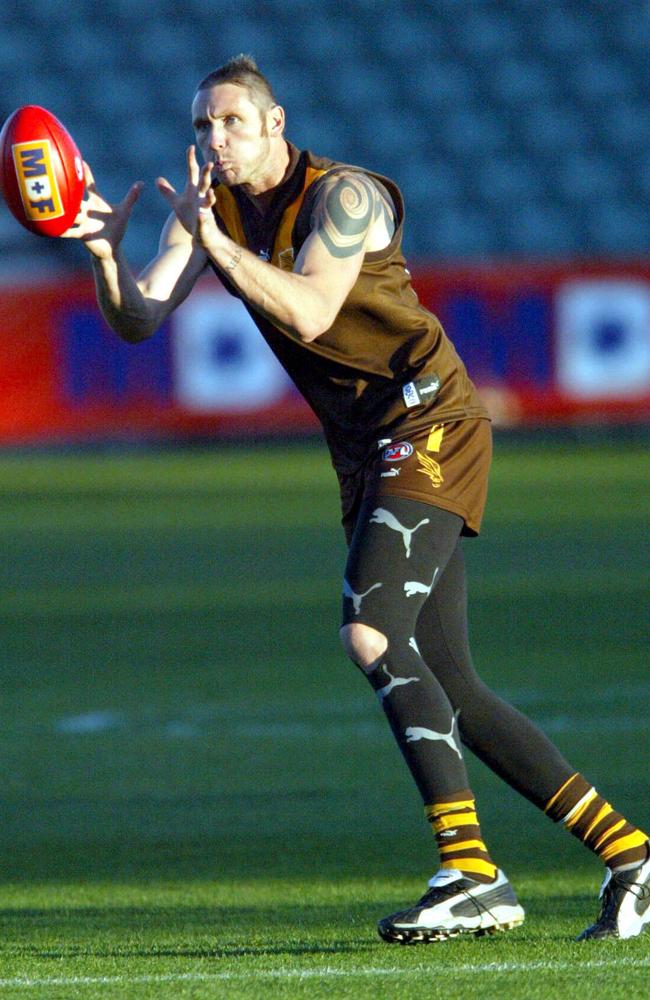
While nicknaming was all part of the camaraderie of the team, Everitt said it could also have a strategic advantage on the field, as the opposition wouldn’t necessarily know who was who.
“If you’ve got nicknames in sport, if you’re hitting the ball to someone, the opposition wouldn’t have a clue who you’re talking about because they’re not in the inner sanctum of the club,” he said, “Even in the early days, one of our set plays was called Redips, which is Spider backwards, but no one knew.”
Andrew “Twiggy” Forrest said he got his famous moniker at the age of nine, shortly after starting boarding school in Perth.
“I was always a skinny little kid, and it was quickly pronounced I was way too skinny to be a forest, even a tree, in fact I was only skinny enough to be a twig. The standing joke was that Twiggy is so skinny he has to run around under the shower to get wet.”
Fifty years on, it’s stuck with him, and he says while he will introduce himself as Andrew, he’s “more than comfortable” being known as Twiggy.
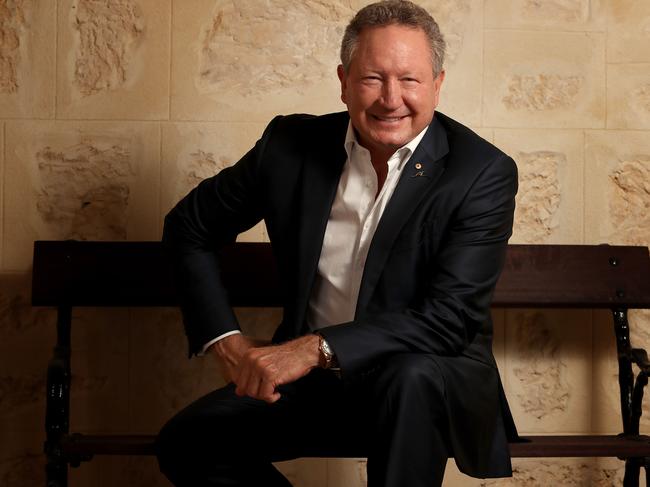
And it’s never caused confusion in business, he said, even among Chinese executives he deals with.
“They think it’s the funniest thing ever, and they debate what Twiggy might look like with a Chinese letter,” he said.
“People who say you lose your professional edge by having a nickname take themselves way too seriously,” he said. “From my Aboriginal mates who I grew up with to my knockabout mates at school, to my uni days, to prime ministers and presidents … people are very comfortable calling me Twiggy, and I don’t think it’s been a handicap.”
Spoken like a true blue Aussie.
HOW THEY GOT THEIR NICKNAMES
ENTERTAINMENT
Denise ‘Dingdong’ Drysdale
Drysdale revealed that her TV co-host Erine Sigley had previously had a secretary called Denise Bell, whom he had nicknamed ‘Dingdong’, and he was “too lazy to think of another nickname”.
Mark Anthony ‘Baz’ Luhrmann
The award-winning director was nicknamed Baz by his father for his hairstyle that was reminiscent of the cartoon character Basil Brush.
Graeme ‘Shirley’ Strachan
The Skyhooks singer was dubbed Shirley when he was a surfer as his curly ringleted hair was reminiscent of Shirley Temple.
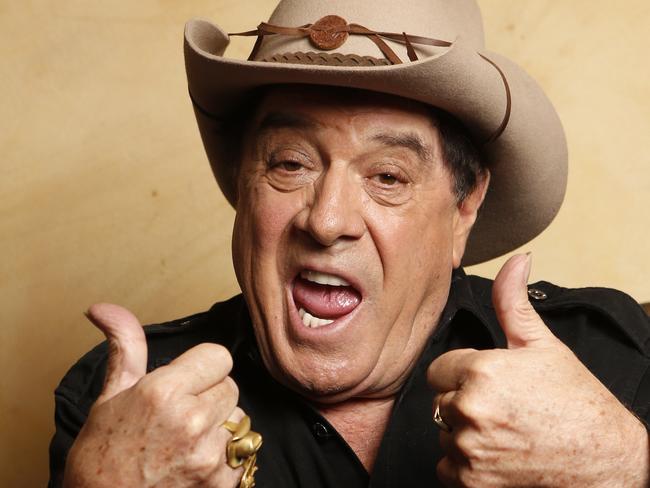
Ian ‘Molly’ Meldrum
The CountDown host earned his nickname in 1967 while he was a music journalist on the paper Go-Set. Meldrum had a “bitchy rivalry” with fellow columnist Stan Rofe, who decided to give Meldrum a girl’s name for a bit of fun.
Andrew ‘Greedy’ Smith
The Mental as Anything keyboardist, who sadly died last year, earned his nickname for eating 15 pieces of chicken on stage.
Bert ‘Moonface’ Newton
The TV legend was first called ‘Moonface’ (for obvious reasons) while working on The Don Lane Show.
Diana ‘Bubbles’ Fisher
The Inventors pannelist was dubbed ‘Bubbles’ by a Sydney radio host, capturing both her effervescent personality and love of champagne.
Simon ‘Hotdogs’ Deering
The Big Brother contestant and one-time late night TV game show host reportedly earned his nickname after calling a teacher ‘a hotdog’ during an argument.
SPORT
Tony ‘Plugger’ Lockett
The AFL legend inherited his father’s nickname, given to him for pottering (or ‘plugging’) around the garden.
Lance ‘Buddy’ Franklin
The AFL champ’s nickname dates back to his childhood, when he was called ‘Buddy’ to differentiate his from his father, who had the same first name.
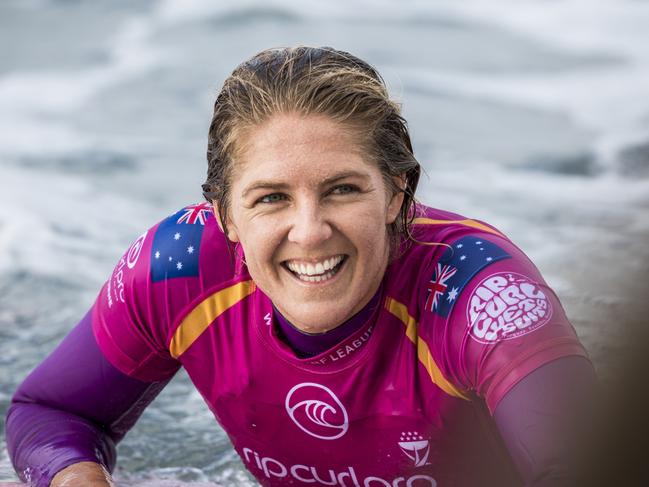
Stephanie ‘Happy’ Gilmore
The surfing world champ’s nickname comes from the 1996 film Happy Gilmore.
Wayne ‘Junior’ Pearce
The NRL legend was given his nickname aged around 20, when his muscle flexing in the gym earned him comparisons to another gym goer who was known as “Flexy”. He became “Flexy Junior” and then just “Junior”.
Brad ‘Freddy’ Fittler
Meeting the young rugby league player for the first time, coach Jack Gibson misheard the name “Brad” and called him “Fred”.
Phil ‘Gus’ Gould
Gould’s nickname came a bit later in life, after his playing days, when somebody decided he looked a bit like Gus, the snail character from the Mr Squigle TV show.
Mark ‘The Scud’ Philippoussis
With serving speeds that reached an astonishing 229km/hr, Philippoussis was likened to the Scud missile heavily deployed during the Gulf War.
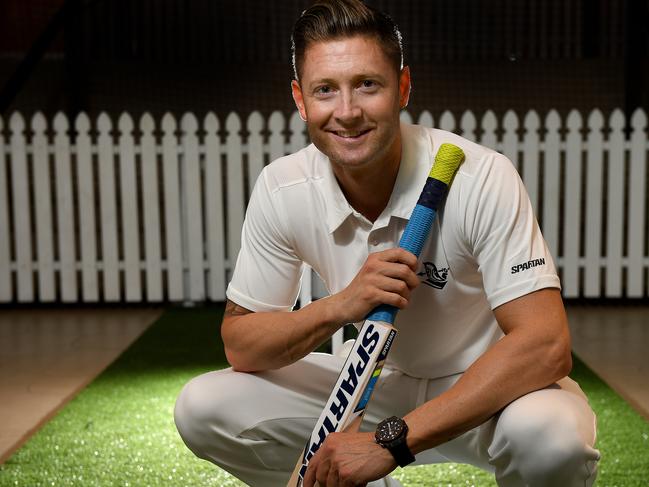
Michael ‘Pup’ Clarke
The former Australian cricket captain was dubbed ‘Pup’ by his teammates when he made the First XI at the age of 21.
Max ‘Tangles’ Walker
The renowned cricketer and raconteur earned his nickname because of his unorthodox bowling action.
OTHER
Andrew ‘Twiggy’ Forrest
The mining boss was given his nickname as a nine year old boy who was “too skinny to be a forest, let alone a tree”.
Andrew ‘Banjo’ Paterson
The Aussie bush poet used “Banjo” as a pen-name, after a horse his father owned when he was a boy.
Ernest ‘Weary’ Dunlop
The revered World War Two veteran’s nickname was an oblique reference to the tyre manufacturer Dunlop, because of the wear on tyres.
Wilson ‘Ironbar’ Tuckey
The former MP earned his nickname in 1967, when, as a publican in Carnarvon, he ejected an Aboriginal man from the hotel with a steel cable.

